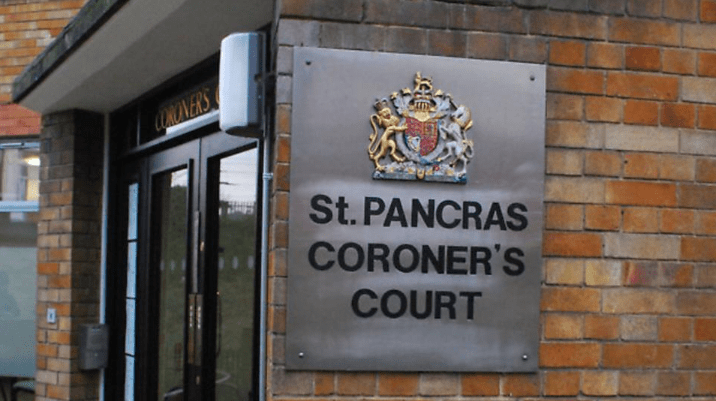Coroner Raises Alarm Over Missed Opportunities to Safeguard Vulnerable Resident
A North London pensioner, found with “severe bruising and swelling” to his face, raised “no concerns” among care staff in the days leading up to his death, a coroner’s inquest has heard.
Derrick Tully, 61, was discovered deceased in his Islington residence on the evening of 20 March 2024. He had sustained multiple falls in the months prior and was suffering from a range of serious health conditions.
An inquest at St Pancras Coroners Court, concluded in March, determined his death was due to an acute brain haemorrhage, compounded by underlying medical issues.
Mr Tully, who had previously been diagnosed with dementia and had experienced strokes in 2016 and 2021, also battled hypertension, kidney disease, aneurysms, and a paranoid disorder. In early 2024, he was placed in temporary housing after submitting a homeless application.
His health deteriorated following a mental health crisis admission in May 2023. From January 2024, he began to suffer frequent falls and was increasingly confused with his medication. The situation prompted the rapid response team to flag his case to his GP, urging a move into supported housing. His care needs were later discussed among medical professionals.
Despite having a supportive family, Mr Tully’s relatives were simultaneously providing end-of-life care to their mother. On the day of his death, carers were unable to contact him in either the morning or evening.
They had no access to his property if he did not respond, as no key safe had been installed—despite this issue being raised on several occasions by family members.
Accommodation and Care Concerns
Assistant Coroner Melanie Lee has since written to Islington Council, Daryel Care, and the Integrated Community Ageing Team at Whittington Health NHS Trust, expressing concerns that similar incidents could result in further deaths if action is not taken.
Ms Lee highlighted a letter from social care outlining that Mr Tully’s accommodation was unsuitable, particularly as access required navigating steps down to street level. However, the housing department did not assign medical points to support a move.
After Mr Tully was discharged from hospital following a fall on 3 February 2024, he initially received a strong care package. This was later replaced with a reablement package designed to encourage independence.
According to Ms Lee, this change was inappropriate for someone with advanced dementia—a concern previously noted by an occupational therapist.
In the weeks that followed, Mr Tully’s condition worsened. He lost weight, was unable to manage his own care, and was not eating properly. On 20 February, he experienced another fall, sustaining “severe bruising and swelling” to his face.
Despite the seriousness of the injuries, care staff from Brixton-based Daryel Care failed to record the incident in his notes or escalate it for medical attention. It wasn’t until his daughter raised concerns on 24 February that the matter was acknowledged.
Mr Tully’s condition continued to deteriorate. A review conducted by the Integrated Community Ageing Team on 6 March led to his discharge within a week, citing his reluctance to engage in a home assessment.
However, Ms Lee noted this was likely due to cognitive impairment caused by dementia, past strokes, and mental health issues.
She added that Derrick’s mental wellbeing was further compromised by difficult relationships with neighbours and fears of ‘cuckooing’—where criminals exploit vulnerable individuals by occupying their homes for illegal activities. “It does not appear that these were factored into his inability to engage with the team,” Ms Lee remarked.
Official Responses and Ongoing Review
An Islington Council spokesperson commented: “Safeguarding our most vulnerable residents is our top priority and we are completely committed to providing high-quality support to people who need it in Islington.
We also work hard to monitor services from other providers, with robust auditing and quality assurance processes to ensure every provider maintains the high care standards we all expect.
We are reviewing the contents of the report and will respond in full to the coroner within the 56-day deadline.”
A spokesperson for Whittington Health NHS Trust added: “We send our condolences to Mr Tully’s family and will carefully consider the coroner’s report to identify any ways in which we can learn from the circumstances of his death to improve the care we provide in future.”






